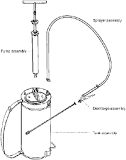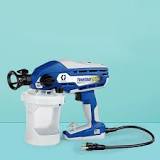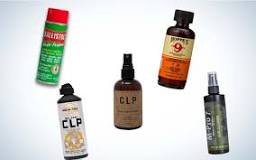When it comes to fogging machines, the most commonly used chemical is hydrogen peroxide (H2O2). This powerful disinfectant is effective at sanitizing environments by eliminating pathogens like viruses, bacteria, and fungi. It’s particularly popular in settings that require stringent hygiene measures, such as hospitals and laboratories.
Types of Chemicals Used in Fogging
Hydrogen Peroxide
Hydrogen peroxide is a go-to for many fogging operations. It can achieve a six-log kill rate, meaning it can eliminate up to 99.9999% of pathogens. When fogged, it disperses evenly throughout an area, ensuring that every corner gets treated. This makes it ideal for both large spaces and specific touchpoints.
Quaternary Ammonium Compounds
Often referred to as “quats,” these compounds are also widely used in fogging machines. They work effectively against a variety of germs and are particularly favored in commercial cleaning settings. They leave behind no harmful residues, making them safe for various surfaces.
Stabilized Hypochlorous Acid
This chemical is gaining traction due to its safety profile. Produced from electrolyzed salt water, stabilized hypochlorous acid is non-irritating and even safe to inhale in small amounts. It effectively kills microbes without leaving behind residues that could damage surfaces.
Insecticides
For pest control, thermal foggers often utilize insecticides like pyrethroids, which are derived from chrysanthemum flowers. These chemicals target specific pests such as mosquitoes and flies, providing quick knockdown while being effective over time.
Why Choose Chemical Fogging?
Chemical fogging is not just about keeping things clean; it’s about ensuring safety in environments where hygiene is critical. The method allows for thorough coverage of surfaces that might be missed with traditional cleaning methods. Plus, the fine mist reaches areas that are hard to access.
FAQ
What safety precautions should I take when using a fogging machine?
Always wear personal protective equipment (PPE) such as masks, gloves, and goggles when operating a fogger. Make sure the area is well-ventilated and follow manufacturer guidelines for chemical mixing and application.
How often should I use a fogging machine?
The frequency depends on the environment. High-traffic areas may require daily or weekly fogging, while less frequented spaces could be treated monthly or as needed.
Can I use any chemical in my fogging machine?
No, not all chemicals are suitable for fogging machines. Always refer to the manufacturer’s guidelines to ensure compatibility with your specific machine.
In conclusion, understanding which chemicals to use in a fogging machine can make all the difference in maintaining a clean and safe environment. Whether you opt for hydrogen peroxide or quaternary ammonium compounds, the key is choosing the right product for your specific needs.







